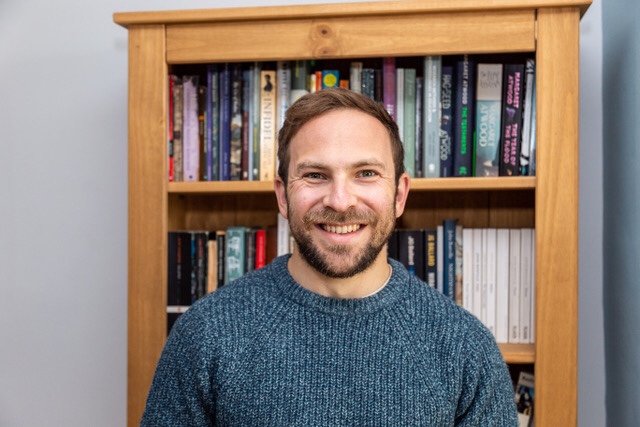In ‘Kombucha’, a prose poem about, among other things, menstrual mooncups, Jay Bernard’s persona asks:
When I stare at these bottles, it’s blood that has been three times enlarged. Who says we have no genealogy? Who says that if I line them up, as ornaments, a blood archive, then it isn’t like us having had a child?
‘Kombucha’ in Jay Bernard, Surge (London: Chatto & Windus, 2019), p. 41
This poem sits a little strangely in Surge (Chatto & Windus), a book that has already been shortlisted for the Costa Book awards and for the 2020 International Dylan Thomas Prize, just like Lot that I reviewed last week. Much of Surge is about two fires that afflicted the black and lower social classes in London: 1981’s New Cross Massacre and 2017’s Grenfell Tower fire.
But ‘Kombucha’ introduces the vocabulary of ‘genealogy’ into the collection. Whilst much can, will, and has already been written about the viscerally emotive poems in Surge—from the ghosts in disembodied mourning in ‘Clearing’ and ‘Duppy’, to the photographic memorial that produces ‘Sentence’, to the interruptive ‘Blank’ that longs for a hero immigrant to be granted leave to remain in the country—in this post I am interested in how Surge constructs genealogies, and how Bernard writes genealogically.
First of all, by connecting the New Cross Massacre—a house fire that killed over a dozen people, injuring nearly thirty more—with the Grenfell Tower tragedy—another fire that killed over seventy people in a high-rise flat—Bernard forges an intimate and tragic connection between these fires. The former was thought of as a racist arson attack; the latter is considered a consequence of a negligent regulatory fault that afflicted BAME and lower social class citizens especially. 1981 and 2017 come to demonstrate in Surge an uncomfortable truth: structural and systemic inequalities remain, and little has changed in the intervening thirty-six years.
Second, Bernard’s archival research and archaeological writing is specifically designed to reinscribe genealogies; that is, to shake the dust off the archival material (in Carolyn Steedman’s powerful metaphor) and place it back in its due historical lineage. Bernard’s poem ‘Ark’ describes this process:
I remove the rusted paper clip, dry-sponge its brittle red remains,
unfold a liver-spotted note in copper ink,
date it by the flaking Letraset and amber glue,
press each part to the flatbed scanner,
wonder which words to file
the damp smoke and young bones under.
[…]
I file it under fire, corpus, body, house.
‘Ark’ in Surge, pp. 2–3
This archival practice acts as a riposte to those who say ‘we have no genealogy’ (to return to ‘Kombucha’). It restores the ethic of community, and revises history with greater information and more testimonies—with better knowledge.
And Surge is also a result of a genealogy—a literary genealogy. In the book’s acknowledgements, among many others Bernard singles out ‘long-time friend[] Kaye Chingonyi’ whose ‘Kumukanda’ won the 2018 International Dylan Thomas Prize. Bernard also thanks to The Complete Works, a mentor scheme for BAME poets initiated and formerly helmed by Bernardine Evaristo, co-winner of 2019’s Booker Prize for Girl, Woman, Other. There emerges in Surge a genealogical line of influence from Evaristo through to Chingonyi and Bernard.
I believe that this literary genealogy is as important as Bernard’s archival restoration, albeit in different ways. The literary genealogy begins to decolonise the overly white and male literary canon, while the poetic revision of history sheds proper light on the stories of the BAME and lower social class citizens whose narratives have been overlooked or suppressed.
And, aside from Surge’s many other important qualities, I think we shouldn’t forget how Bernard is a genealogist.


Leave a Reply